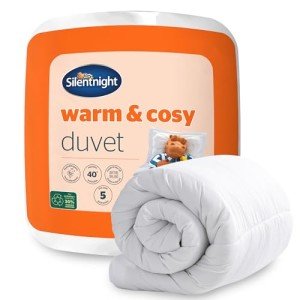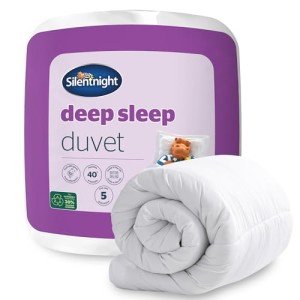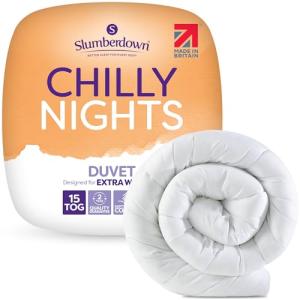In an era where health and comfort are paramount, choosing the right bedding is essential, particularly for individuals with allergies or sensitivities. Bunk beds, popular for their space-saving design and practicality, often require specialized bedding solutions to ensure a cozy and healthy sleeping environment. Cozy anti-allergen bunk bed duvets are designed to create a snug atmosphere for individuals of all ages while minimizing the risk of allergic reactions. In this article, we will explore the importance of anti-allergen bedding, the features of cozy duvets, and how to properly care for them throughout the seasons.
What Are Anti-Allergen Duvets?
Anti-allergen duvets are specially designed bedding materials made to minimize allergens that can disrupt quality sleep. These duvets are constructed using hypoallergenic materials that repel dust mites, mold, and other common allergens. With bunk beds becoming a staple in homes, schools, and dormitories, the need for quality anti-allergenic bedding in shared sleeping spaces is increasingly more important.
Key Features of Cozy Anti-Allergen Duvets
Choosing the right anti-allergen duvet involves understanding its features and benefits. Here are some key characteristics that make these duvets ideal for cozy comfort all year round:
-
Hypoallergenic Materials:
- Duvets made from synthetic fibers such as polyester or down-alternative materials are less prone to harboring allergens.
- Organic cotton options offer breathable and eco-friendly alternatives.
-
Breathability and Temperature Regulation:
- Anti-allergen duvets are designed to provide warmth without overheating, ensuring comfort across all seasons.
- Many also feature moisture-wicking properties that help keep the sleeper dry and comfortable.
-
Easy Care and Maintenance:
- Most anti-allergen duvets are machine washable and quick to dry, making them easy to maintain.
- Many products come with removable covers that can be washed separately.
-
Durability:
- High-quality construction ensures that these duvets withstand regular use and maintain their anti-allergen properties over time.
-
Variety of Sizes:
- Available in various sizes, including twin, full, and even specially-designed bunk bed sizes to fit snugly without slipping.
Benefits of Anti-Allergen Duvets for Bunk Beds
In addition to the core features, using cozy anti-allergen duvets in bunk beds has several advantages:
-
Enhanced Sleep Quality: Duvets designed to deter allergens help provide a restful night's sleep, crucial for children and adults alike.
-
Improved Health: Reducing exposure to common allergens like dust mites can help minimize allergy symptoms and improve overall respiratory health.
-
Comfort and Warmth: Quality duvets provide the right amount of insulation, making them suitable for all seasons.
-
Aesthetic Appeal: Many anti-allergen duvets come in various colors, patterns, and designs, allowing for customization and an aesthetically pleasing bunk bed setup.
Popular Types of Anti-Allergen Duvets
When shopping for anti-allergen duvets for bunk beds, you'll come across several options, each with unique benefits:
| Type | Description | Pros | Cons |
|---|---|---|---|
| Microfiber Duvets | Made from ultra-fine synthetic fibers, known for their soft touch. | Soft, lightweight | May not be as warm |
| Down Alternative Duvets | Synthetic option mimicking down’s insulating properties. | Warm, fluffy feel | Less breathable |
| Organic Cotton Duvets | Made from natural materials free of pesticides. | Eco-friendly, breathable | Limited warmth |
| Cotton Percale Duvets | Door functions of traditional cotton with a crisp finish. | Durable, soft | May require frequent washing |
Caring for Your Bunk Bed Duvets
To ensure that the cozy anti-allergen duvets maintain their characteristics and last longer, proper care and maintenance are essential. Here are some tips:
-
Regular Washing:
- Follow the manufacturer's instructions, but expert recommendations typically suggest washing every 3-6 months.
-
Use a Duvet Cover:
- Investing in a high-quality duvet cover can help protect the duvet; covers can be washed weekly to reduce allergens significantly.
-
Drying:
- Always ensure that your duvet is completely dry to prevent mold growth. Tumble dry on low heat or air dry when possible.
-
Storage:
- When not in use (during warmer months), store duvets in breathable cotton bags to avoid moisture buildup.
-
Replace Regularly:
- Like any bedding, duvets have a lifespan. Replace them every few years or whenever you notice loss of loft or stains.
Frequently Asked Questions (FAQs)
-
What is the best material for an anti-allergen duvet?
- Synthetic materials like microfiber or down-alternatives are considered highly effective. Organic cotton is another great option for those looking for natural textiles.
-
Can I machine wash my anti-allergen duvet?
- Most popular anti-allergen duvets are machine washable. However, always check the care label for specific washing instructions.
-
How often should I wash my duvet?
- It is recommended to wash your duvet every 3-6 months, depending on usage and the individual’s allergies.
-
Are bunk bed duvets different from standard duvets?
- Bunk bed duvets typically come in smaller sizes and are designed to fit snugly on bunk beds without slipping off.
-
Do I need to use a duvet cover?
- While not mandatory, using a duvet cover can help prolong the life of the duvet and reduce allergens.
In conclusion, cozy anti-allergen bunk bed duvets provide a comfortable, healthy sleeping environment that appeals to a wide range of users. Whether for children in shared spaces or for adults seeking a safe and breathable option, selecting the right duvet can significantly enhance the quality of sleep and overall well-being. By understanding the features and benefits of these duvets and following proper care instructions, individuals can enjoy the warmth and protection that anti-allergen bedding offers across all seasons.






